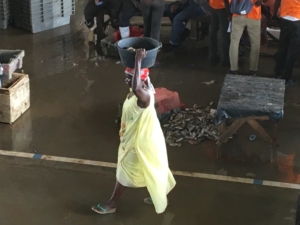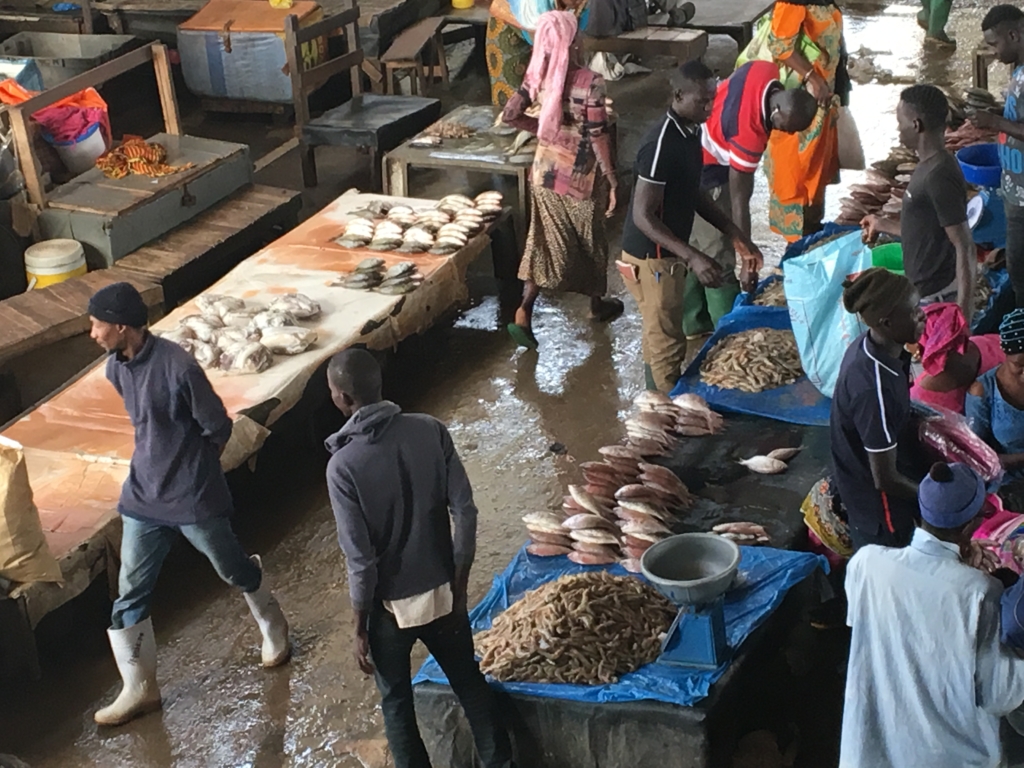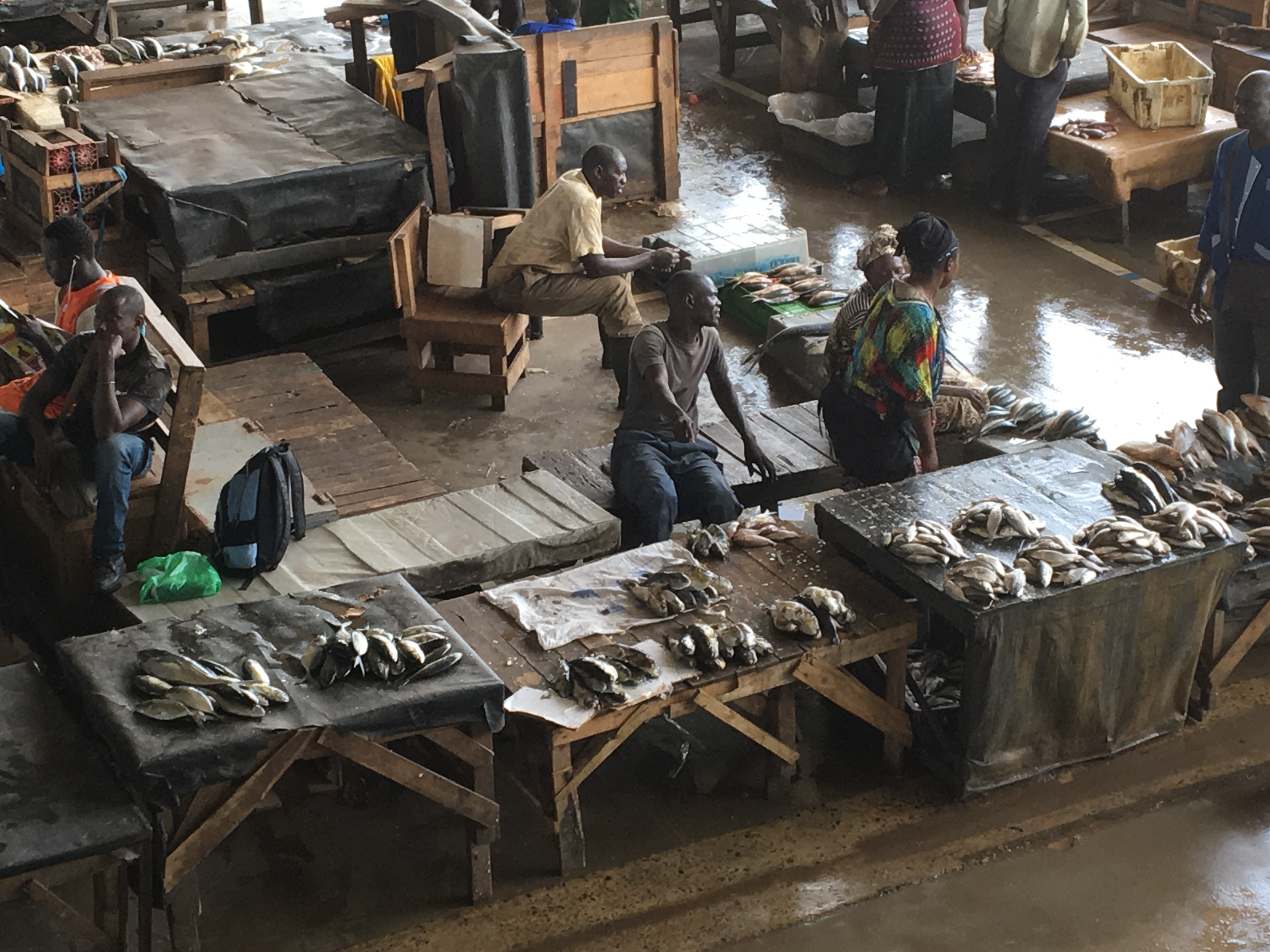In Senegal, a fishermen’s return on investment suffers due to the inability to keep the catch in cold storage. A day’s catch must be sold quickly or thrown away.

Aldelano Solar Solutions had the pleasure of visiting a fish market in Senegal in November 2018 to explore possible solar cold-storage solutions that will spur economic growth and support local fishers! Key Aldelano Solar Solutions executive team members met with local governmental leadership in Senegal to consider the impact that solar cold storage might have on the local economy.
Through solar cold storage, local fishermen can not only preserve their catch to sell at the market for multiple days, but ensure they receive greater return on investment by extending the shelf life of their product to export more goods.
Nearly 400,000 women work as fish processors in Senegal fish markets. Overfishing by foreign fleets, illegal fishing and climate change have are making fish scarce in the region! It is critical for local fishers to preserve their catch and reduce waste due to a lack of cold storage.
Processing fish is critical for Senegal populations deep in the country’s arid interior and beyond. Currently, locals must process fish for preservation and transportation as refrigeration is expensive. Solar cold storage has the power to reduce costs of preservation and increase quantities for the exportation and distribution of fresh fish.
The current paradox is that many local women earn more from exporting fish products to foreign markets even though there is a food security crisis at home. Robust, solar cold storage can aid in the fight against food insecurity, reduce costs, increase revenues and keep fish in Senegal.

Senegal has one of the world’s highest unemployment rates at nearly 48 percent. Aldelano Solar Solutions hopes to offer Senegal and other developing nations the necessary industrial-grade cold storage to help local fish economies flourish. A stronger economy generates jobs, which decreases poverty and increases food security allowing locals to afford fish that are typically exported due to high consumer prices such as tuna and hake.
Low-maintenance, high return solar technology has the power to immediately impact local economies in emerging markets like Senegal.

